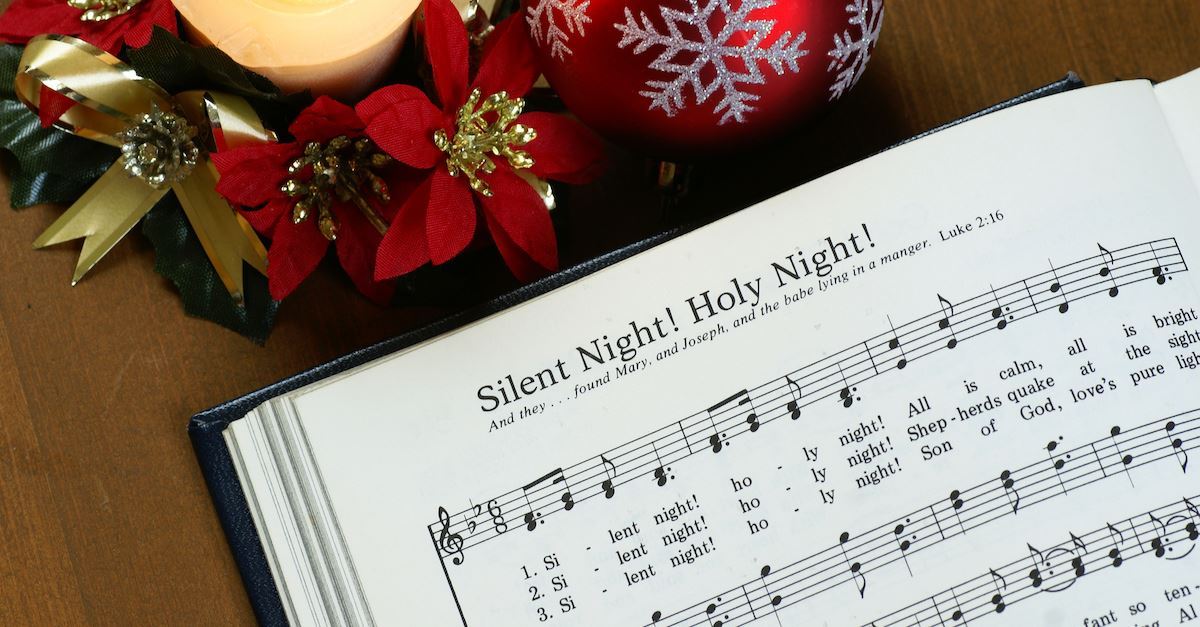
Did you hear about the little boy and girl who were singing their favorite Christmas carol in church the Sunday before Christmas? The boy concluded “Silent Night” with the words, “Sleep in heavenly beans.” “No," his sister corrected, “not beans, peas.” Then there were the kids I heard one time sing, “Joy to the World! The Lord has gum.”
Those
funny stories got me thinking about how, even as adults, we often misinterpret
many of the Christmas carols we sing. I don’t mean that we incorrectly hear the
lyrics and misquote the words like those kids; I’m thinking instead of the
inaccuracies that we mindlessly sing. These are errors that when you think about
them, have no basis at all in the Biblical record.
Consider a
few examples. “Silent Night / Holy Night / All is calm / All is bright.” Do you
really think that first Christmas was that tranquil? Well, if you’ve ever been
in a delivery room then you know what it’s like—it’s messy, loud, and frantic.
There are sights and sounds you’ll never forget. There are the agonizing cries
of the mother bringing a life into the world and the high-pitched cries of the
baby taking its first breaths.
I doubt
the birth of Christ was any different. Mary, without the dulling effects of an
epidural, screamed out as the contractions became unbearable. Jesus broke in
his vocal chords with a shrill cry, as the audible voice of God finally came through
a human larynx. Perhaps, Joseph celebrated the improvised delivery in his own
way. A silent night, it most certainly was not.
How about
this one, “I saw three ships come sailing in on Christmas Day in the morning/ O
they sailed into Bethlehem on Christmas Day in the morning.” Last time I
checked a map, Bethlehem is landlocked and the nearest body of water—the Dead
Sea—is miles away. So it is physically impossible for this song to have any
validity all. Talk about a mistaken mariner!
“We Three
Kings” is another perennial favorite. However, you’ll never find three kings
coming to visit the Christ child in Matthew's account. In fact, the Bible doesn’t tell
us how many wise men came to worship Jesus, only that they brought three gifts.
And the Bible never calls them kings either—magi, to be technically correct.
They were astrologers looking to connect the events of earth with the movements
of the constellations. You can credit years of medieval traditions for these wild
speculations.
Then there
is, “I’ll Be Home for Christmas,” which has been popularized by crooners like
Nat King Cole and Bing Crosby. Even though this song has nothing to do with the birth of Christ and was probably written to comfort WWII soldiers serving in
Europe and the Pacific, I think it’s ironic because that first Christmas no one
was home!
Mary and
Joseph were traveling from Nazareth to Bethlehem in order to be counted for the
Roman census. The Magi traversed across a sea of sand following a mysterious
star to where the Christ child rested. Most of all, the Son of God was not at
home. He left the celestial glory of heaven for the cramped quarters of a virgin’s
womb. He laid aside His royal robes for swaddling clothes, and His Father’s
house for a manger. He stepped out of eternity and into time.
As Paul
stated so eloquently, “When the time came, He set aside the privileges of deity
and took on the status of a slave, became human! Having become human, He stayed
human. It was an incredibly humbling process. He didn’t claim special
privileges. Instead, He lived a selfless, obedient life and then died a selfless,
obedient death—and the worst kind of death at that—a crucifixion” (Phil 2:5-8,
MSG).
I hope by
now you understand my point. The Christmas traditions we celebrate are part
fact and part fiction. Sometimes even adults don’t know the difference. The
problem is due to a lack of spiritual discernment and because many Christians
just simply haven’t done their homework in the Bible. If we are going to make
this holiday more about the incarnation of Christ and less about the materialism
and commercialization, then we need to have our theology and history in order.
Let’s not feed our minds and spirits on the equivalent of fruit cake. Let’s
know what we believe and why we believe it.
No comments:
Post a Comment